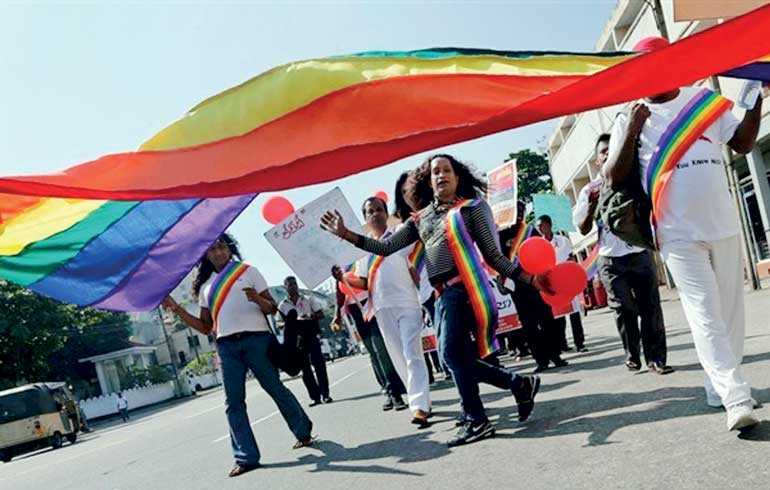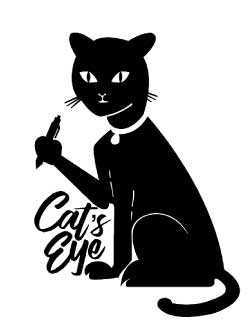Saturday Feb 21, 2026
Saturday Feb 21, 2026
Thursday, 28 June 2018 00:00 - - {{hitsCtrl.values.hits}}

While involvement in LGBT advocacy varies vastly amongst women’s rights organisations and individual activists, such advocacy has become more and more visible in recent years. Here members and supporters of Sri Lanka’s LGBT community participate in an event organised to mark World AIDS Day in Colombo – AP
Is sexuality a feminist issue? This question was posed memorably by women’s and human rights activist, Sunila Abeysekera, in 1999, and answered by her in the affirmative.
We want to pose this question, once again, as we mark ‘Pride’, the shorthand for efforts made in many parts of the world this month to push for the recognition of lesbian, gay, bisexual and trans (LGBT) existence and rights. We are interested in how Sunila approached this question--making it a debate that was internal to women’s movements and asking feminists to reflect on their ownership of these issues.
There has been solidarity for LGBT issues from women’s rights activists, and some support from a few women’s organisations over the past two decades, in Sri Lanka, but it is fair to say that these issues have not been at the forefront of the collective mainstream women’s rights agendas. However, what may not be apparent are the strategic efforts of individual women’s rights activists and an increased number of organisations. In the past few years, some have been trying from their location as women’s rights activists, to support advocacy for Sri Lanka’s lesbian, gay, bisexual and trans (LGBT) communities, and their efforts have paid off.
While involvement in LGBT advocacy varies vastly amongst women’s rights organisations and individual activists, such advocacy has become more and more visible in recent years. It dates as far back as the mid-to-late 1990s, coinciding with the emergence of LGBT advocacy groups in Sri Lanka. The awareness that women’s rights activists can create on matters of sexuality was increasingly evident in the lead up to the change of government (in 2015) and the period thereafter, when women’s rights activists were placed in a position to politically leverage change.
Following the 2015 elections, the National Unity Government’s election to power was a time when the State made a commitment to portray an agenda of re-establishing respect for human rights, the rule of law, and good governance. They initiated a number of consultative processes to obtain the views of the public on these matters. Civil society activists, therefore, had some chance to shape this agenda. Many helped envisage this desired social and political reform and participated in the mechanisms driving it.
Women’s rights activists also made their voice heard in many of these consultative processes, and, in doing so, some created opportunities within the scope of women’s rights and wider social justice issues with which they were concerned, for taking LGBT issues into account.
If this tactic was not entirely new, the circumstances made it an important one. In a post-war context, when transitional justice mechanisms were being crafted towards achieving some degree of truth, justice, reparations and guarantees of non-recurrence, there was no automatic recognition that same-sex sexuality and gender non-conformity were areas that had been impacted by over thirty years of war and had to be included in the range of issues around which public consultations were being conducted.
This awareness had to be created by civil society actors, and women’s rights activists, including LGBT rights activists took up the challenge of doing so. LGBT concerns did not feature in any previous discussions on transitional justice, such as within the Lessons Learnt and Reconciliation Commission (LLRC) and other Commissions dealing with conflict related violations.
A good example of such efforts were the attempts to engage with the Consultation Task Force for Reconciliation Mechanisms in August 2016. Women’s rights activists were successful in convening a focus group discussion with LGBT individuals and organisational representatives with the Western Province Zonal Task Force on Reconciliation Mechanisms.
This discussion and a written submission on the issues facing LGBT persons, in relation to Transitional Justice, helped shape the final report and recommendations of the Consultation Task Force. Some of the concerns raised in this discussion and submission focused on the prevailing laws, the creation of an enabling environment, addressing the needs of LGBT people, the surveillance of work done by human rights defenders, and sexual violence.
Though women’s rights activists had a hand in creating this opportunity, they were by no means the only actors. Sri Lankan LGBT groups such as Equal Ground, Women’s Support Group, and individuals, had and have been working for decades at national and international levels, for state recognition for these issues. Groups and individuals were quick to grasp openings for change, especially on reconciliation mechanisms and constitutional reform, when they presented under the new regime.
Thus, it is not a question of assigning special value to what women’s rights activists were able to do over what other actors could, but a case of opportunities that they, as women’s rights activists, were positioned to access at that moment in time. This was the result of a complex set of circumstances, not least of which was the changed state-civil society relationship in which the state took the approach of ‘consulting’ civil society on key matters. Women’s rights activists were prominent amongst those who were ‘consulted’, not only for gender-specific issues but across a range of human rights and social justice issues, which gave them some measure of leveraging power.
Critical in this process were the sittings of the Public Representations Committee (PRC) that called for oral and written submissions on Constitutional reform. Women rights activists from women’s organisations chose to include sexual orientation and gender identity concerns in submissions on bodily integrity, calling for the securing of LGBT rights as fundamental rights in the new Constitution the State was seeking to draft.
Their voice served to strengthen the advocacy of LGBT activists, and the PRC report recommended that the Bill of Rights include a clause that ‘No person or group shall be discriminated against on the grounds of …. sexual orientation and sexual or gender identities’. The Committee acknowledged submissions from all over the island and from many sources to protect the rights of LGBT persons, as they explicitly provided input to initiate a dialogue on the rights of the community as well as Constitutional protections.
Women rights activists were also instrumental in including a number of provisions for the protection of LGBT rights into the National Action Plan for the Protection and Promotion of Human Rights 2017 - 2021, NHRAP. Not only did some civil society actors including women’s rights activists constructively participate in committees in relevant areas of expertise in the formulation of the NHRAP, but they additionally lobbied for improvement at the Universal Periodic Review, where the NHRAP was finally presented and discussed.
A shift in thinking was evident in the inclusion, initially, of a clause on equality and non-discrimination on the grounds of sexual orientation. This was originally included and flagged as a voluntary pledge in the national report but scaled back by the end of the review process, with Sri Lanka not committing to support recommendations on decriminalisation as a result of Presidential intervention. Thus, equality provisions in the NHRAP, though actionable, remain confined to gender identity, and in no way guarantee that sexual orientation is a basis for equality and non- discrimination.
Even prior to 2015, some women’s rights activists engaged with a number of international and national mechanisms for progressing women’s rights, to advance LGBT human rights issues in Sri Lanka. The Opposition Leader’s Commission on the Prevention of Violence Against Women and Girls, comprising a number of women’s rights activists and scholars, offers a recent example at the national level.
Initially set up under the Leader of the Opposition, Ranil Wickremasinghe and continuing under his purview as Prime Minister, as a Task Force on Violence Against Women, it challenged the limits of who could be included under the category of ‘woman’ and the type of violence that could be recognised under the well-known women’s rights rubric of ‘violence against women’.
LGBT organisations and individuals were able to make submissions before the Task Force, on violence visited on lesbians, bisexual women and trans persons (LBT) persons. It was a notable opportunity for LBT people to ensure that a state mechanism recognised and documented this abuse (the Commission’s report was finalised in 2014), and integrated it into its action plans.
Women’s rights groups have been engaging with international treaty body mechanisms, with specific reference to the Convention on the Elimination of All Forms of Discrimination against Women (CEDAW), International Covenant on Economic, Social and Cultural Rights (ICESCR) and the Universal Periodic Review (UPR). Submissions were made on LBT rights, supporting similar reports submitted by LBT groups, in a unique form of collective strategising.
Women’s rights groups have sought to go beyond the limits of the law and decriminalisation, calling for the state to put in place policies to address prejudice, negative stereotyping and discrimination, which are deeply embedded in value systems and practices against the LGBT community. Such framings have included the right to non-discrimination, to be free from all forms of violence and cruel, inhuman and degrading treatment, and the right to privacy, freedom of expression and association.
Women’s rights groups have also highlighted the right to work, social security, physical and mental health, and education – all areas in which persons of diverse sexual orientation and identity suffer discrimination.
Many women’s rights activists have come to the table, willing to be part of a real change, and their efforts have been a precedent. But what has been the outcome of all their collective and individual strategising, consultations and submissions? Only a negligible part of these efforts have been recognised, leave alone implemented, by successive governments through the years. Unfortunately, heteropatriarchal roadblocks seem to be still in place. The positive stand against discrimination and violence against LGBT people is a lifelong collective and individual effort – these efforts are our pride!
(The Cat’s Eye column is written by an independent collective of feminists, offering an alternative feminist gaze on current affairs in Sri Lanka and beyond.)